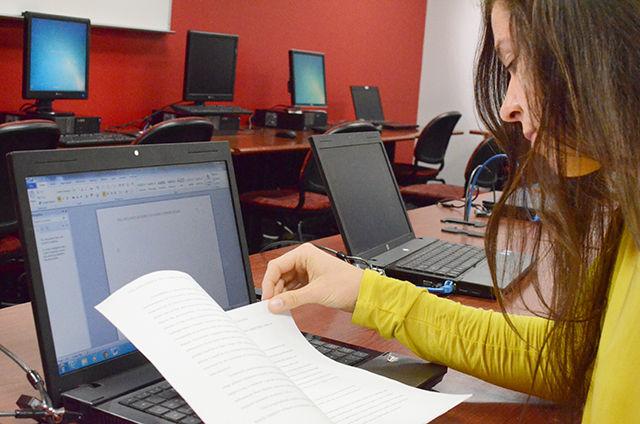In the midst of the academic scandal plaguing UNC-Chapel Hill and its athletic program, an NC State professor released a study finding that the lives of Division-I student-athletes are harder than many people think, and there is more at play than simply balancing school and sports.
Lynsey Romo, an assistant professor of communication, authored the study, which examined how student-athletes deal with the uncertainty inherent in their positions. Uncertainty, as defined by the study, is how a given person reacts to unpredictable situations.
“This study was done to look at the uncertainties that student-athletes face, and how they manage those uncertainties,” Romo said.
Obviously, student-athletes are tasked with maintaining high grade-point averages and athletic prowess, but beyond that, student-athletes also face problems with relationships and career preparation, according to Romo.
Many athletes have problems differentiating between their real friends and those who are just attempting to be their friends because of their athlete status, Romo said. She also said the student-athletes who don’t expect to go pro in their respective sports find that they don’t have time for internships or career preparation during college due to hectic practice and game schedules.
“It would be nice for student-athletes to be able to do internships to prepare them for a career outside of athletics,” Romo said.
Unfortunately, however, Romo said this isn’t always the case at big universities, which she said need to help better prepare their athletes for careers after graduation by developing relationships with employers and providing athletes with internships during the off season.
“Universities need to give student-athletes more downtime away from their sport,” Romo said.
Romo conducted her study by interviewing 17 athletes from an undisclosed Division-I school in the southwestern United States. Though Romo said her study is not generalizable, Zachary Kuder, a freshman in business management and a member of the NC State football team, said he could relate to Romo’s findings.
“My biggest challenge is time management and finding time to get all of my homework done and at the same time still go to practice,” Kuder said.
Though Kuder said time management is a struggle, he said the university helps student-athletes balance school and sports by making study-hall sessions mandatory to ensure athletes are getting their schoolwork done and not procrastinating.
“If I’m struggling in a class, I get tutoring, and I have to go to study hall,” Kuder said.
However, Romo, who also concentrated on the different coping mechanisms that student-athletes use to deal with the challenges that they face, said study hall alone is not enough to put student-athletes’ uncertainties to rest.
“One of the biggest struggles of being a student-athlete is not knowing what you’re going to do with your life after college,” Romo said. All in all, student-athletes are misunderstood and face many challenges that the wnormal student doesn’t, Romo said.
“People think that student-athletes have such an easy, glamorous life, but there are a lot of challenges that they face,” Romo said.








